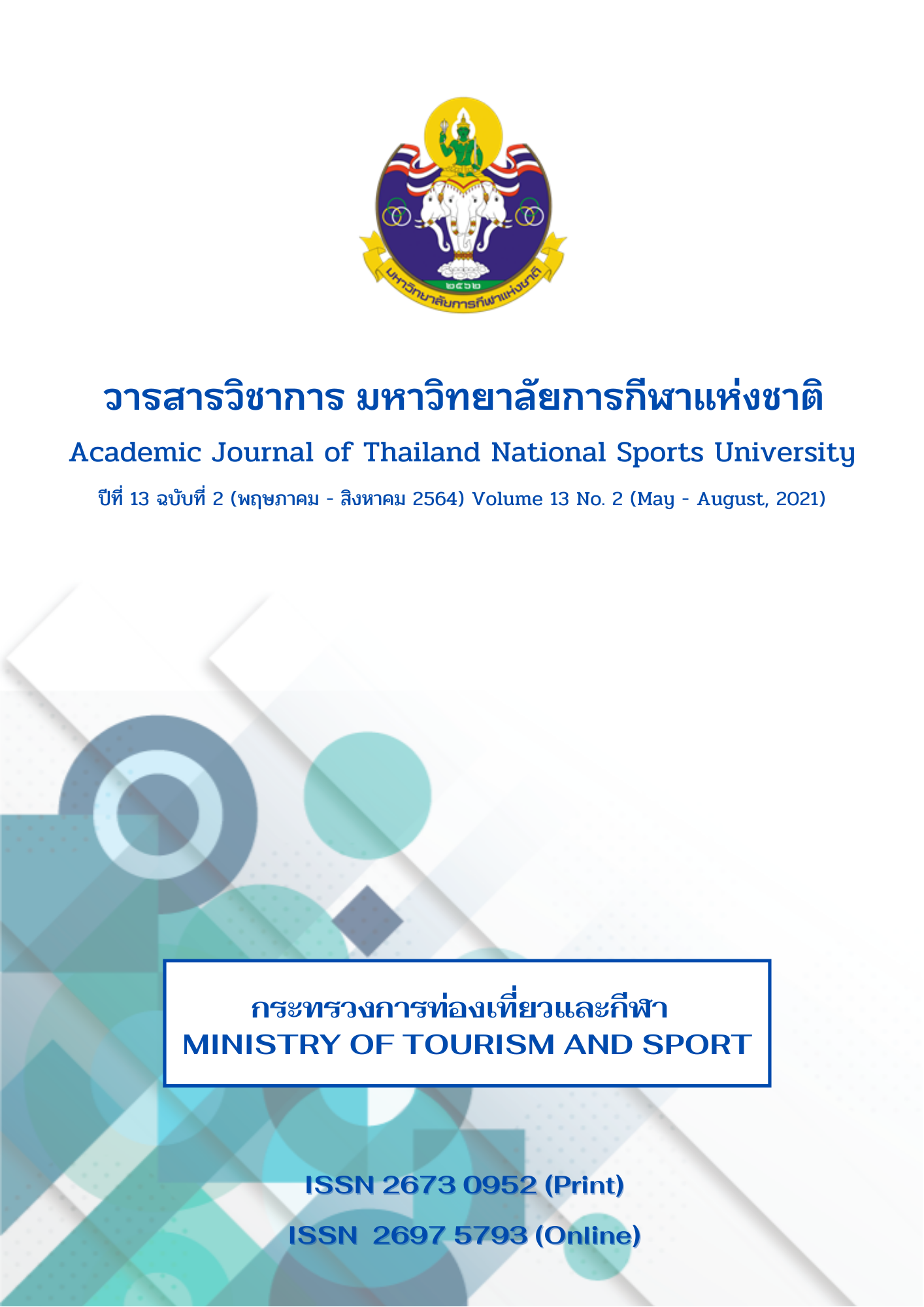PROBLEMS OF AMATEUR MUAYTHAI TRAINING OF INSTITUTE OF PHYSICAL EDUCATION
Main Article Content
Abstract
The purpose of this research was to study the problems of amateur Muaythai training of the Institute of Physical Education. The samples of this study were 223 subjects consisted of 185 amateur Muaythai athletes, 19 coaches and 19 administrators or managers who were chosen by multi-state mix random sampling and selection method. The instrument used to collect the data were questionnaires consisted of checklist, 5-points Likert-type scales and open ended questions. In this research, the IOC index of content validity was ranged between 0.75 – 1.00, while a whole reliability of the questionnaire as shown by the Cronbach alpha coefficient was 0.80. The statistics for the data analysis were frequency, percentage, mean and standard deviation.
Based on the analysis of the gathered data, the findings showed that: the problems of athletic was rated at a moderate level, with an average of 2.55 and standard deviation of 1.39. The coaching problems was rated at a low level, with an average of 2.48 and standard deviation of 1.41. The administrator or manager problems was rated at a low level, with an average of 2.25 and standard deviation of 1.19. The athlete retention and sport training problems was rated at a moderate level, with an average of 2.54 and standard deviation of 1.26. The problems of places, equipment and facilities was rated at a moderate level, with an average of 2.62 and standard deviation of 1.24. The problem of utilizing sports science was rated at a low level with an average of 2.44 and standard deviation of 1.12. In the same manner, a whole problems of amateur Muaythai training of the Institute of Physical Education was also rated at a low level, with an average of 2.48 and standard deviation of 1.27.
Article Details
The published article is a copyright of the Academic Journal of Thailand National Sports University. The passage appeared in each article in this academic journal is a perspective of each author which is not related to the journal. Each author is required to be responsible for all components of his/her own article. If there are any mistakes, each author must be responsible for those mistakes on his/her own.
References
Boonchom Srisa-ard. (2002). Introduction to Research (7th ed.). Bangkok: Suveeriyasan.
Bowon Boonyong. (2002). Problems of Boxing Training of Bangkok Secondary Education Service Area 1 (Master’s thesis), Srinakharinwirot University.
Charoen Kraboanrat. (1982). Competitive Psychology Training. Journal of Health, Physical Education and Recreation, 86, 20.
Mongkol Feangsaken. (1992). Strategies of Coaching. Mahasarakham: Mahasarakham Teacher College.
Paiwan Tanlaput. (2007). Introduction to Physical Education. Bangkok: Chulalongkorn University Press.
Petcharat Yanrangsee. (2004). Problems of Team Preparing of Youth Weightlifting Competition Championship in the Year 2003 (Master’s thesis), Srinakharinwirot University.
Rovilnelly, R. J., & Hambleton, R. K. (1977). On the Use of Content Specialists in the Assessment of Criterion-referenced test in Item Validity. Dutch Journal of Education Research, 2, 49-60.
Samat Amatkul. (2003). Situations and Problems of football team preparing for lower-eighteen- year-old Students of the Sports and Recreation Development Office, Tourism and Sports Ministry in the Year 2002 (Master’s thesis), Srinakharinwirot University.
Sonthaya Seelamat. (2007). Tennis performance Development Utilizing Sports Science. Bangkok: Chulalongkorn University Press.
Suprit Samahito. (1991). Sport Psychology and Coach. Bangkok: Kasetsart University.


